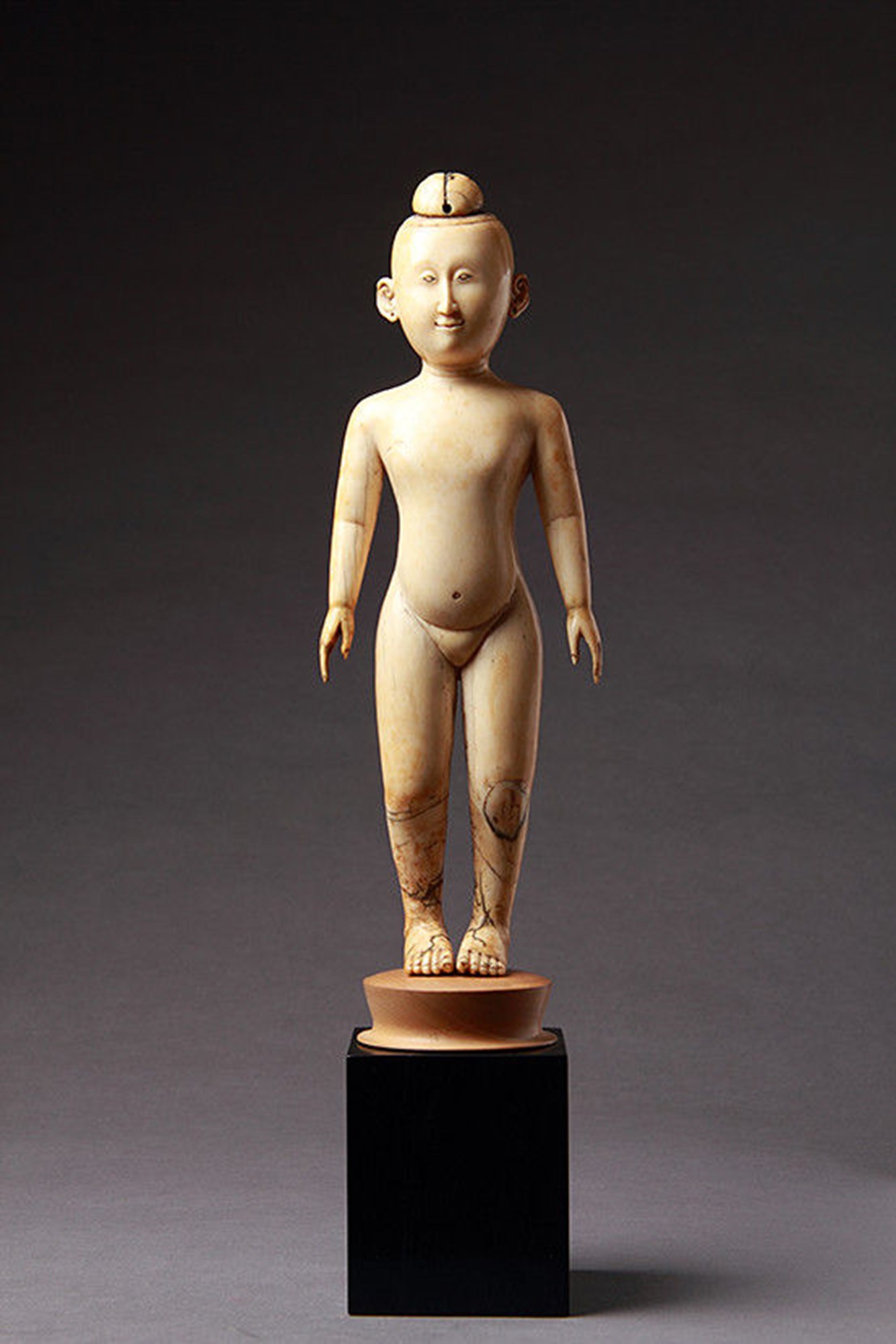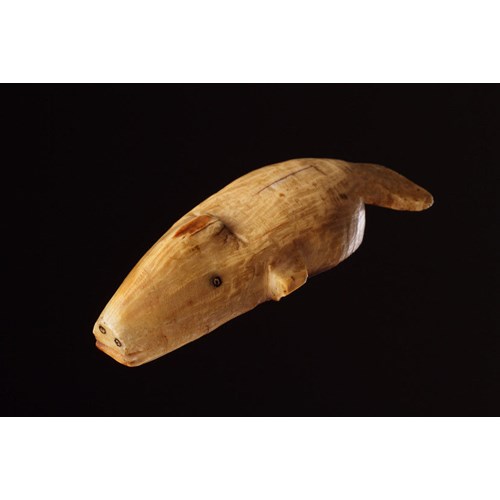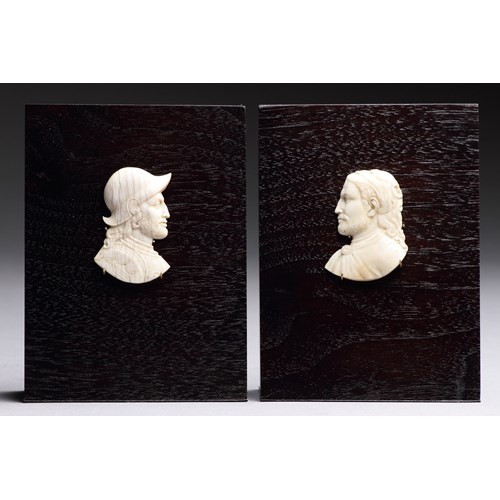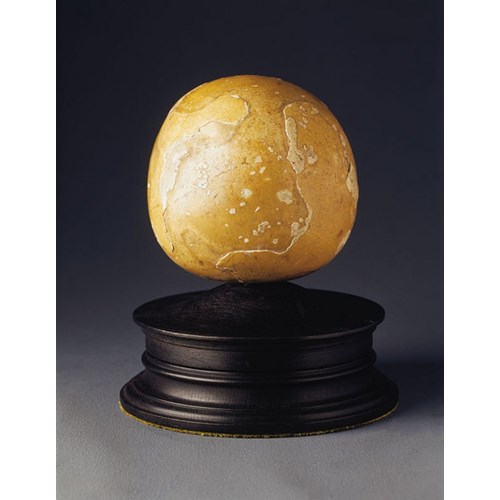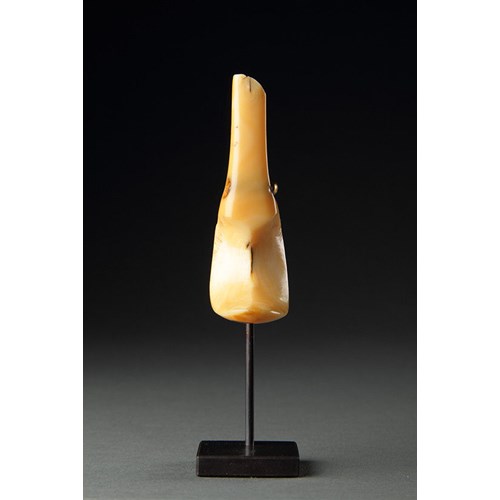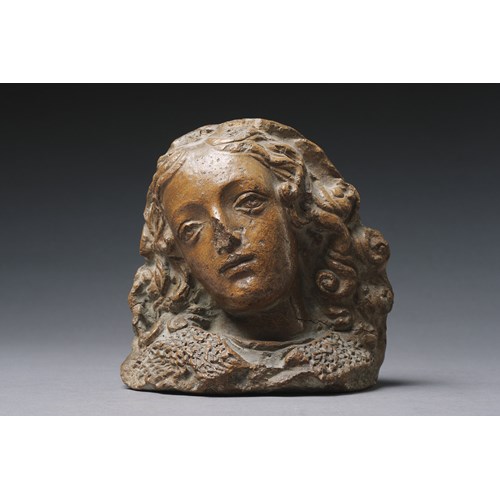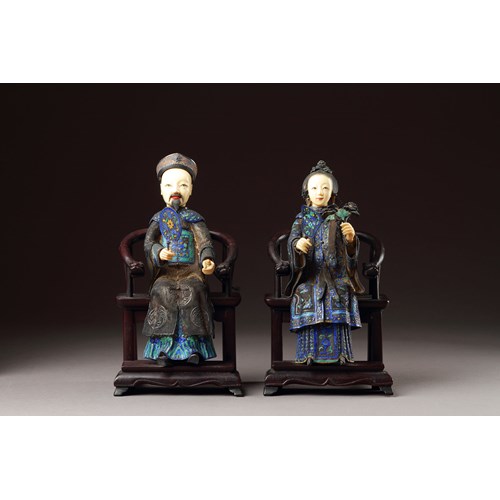South East Asian Thai Carved Ivory Processional Statuette
Epoque 1700-1900
Origine Thailand
Medium Ivory
Epoque: 1700-1900
Origine: Thailand
Medium: Ivory
Literature: Geographically bordered, and artistically influenced by Burma, Cambodia and Laos and with trading and maritime relations with Sri Lanka, Java and India, Thailand’s sculptural traditions have a rich non-indigenous heritage. For all periods of Thai history large segments of the population were Mon, Khmer and later Chinese and all of these non-Thai cultural influences have always been prominent.
The infant Buddha is associated with a nativity cult centred around the event of his birth, and this image is related to the colonial ivory sculptures of the infant Jesus made throughout South east Asia as religious images for the Christian community. The face is finely detailed and sensitively modelled with a hint of a smile on the lips. The body is elegantly slender and well proportioned with a suggestion of sensuous swell to the belly. This figure of the Buddha carefully combines the human ethos of the mortal seer with the divine majesty of the Universal Monarch.
Plus d'œuvres d'art de la Galerie


